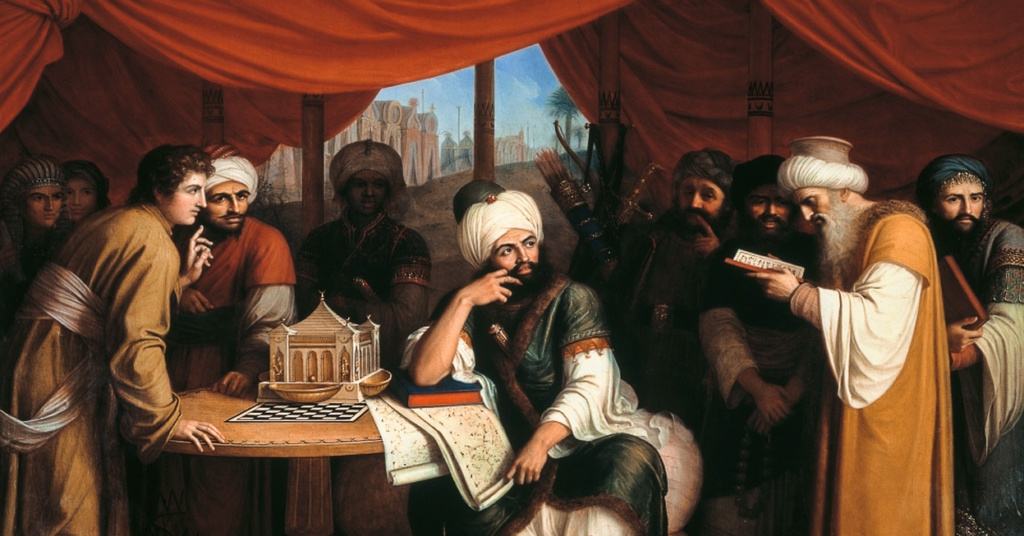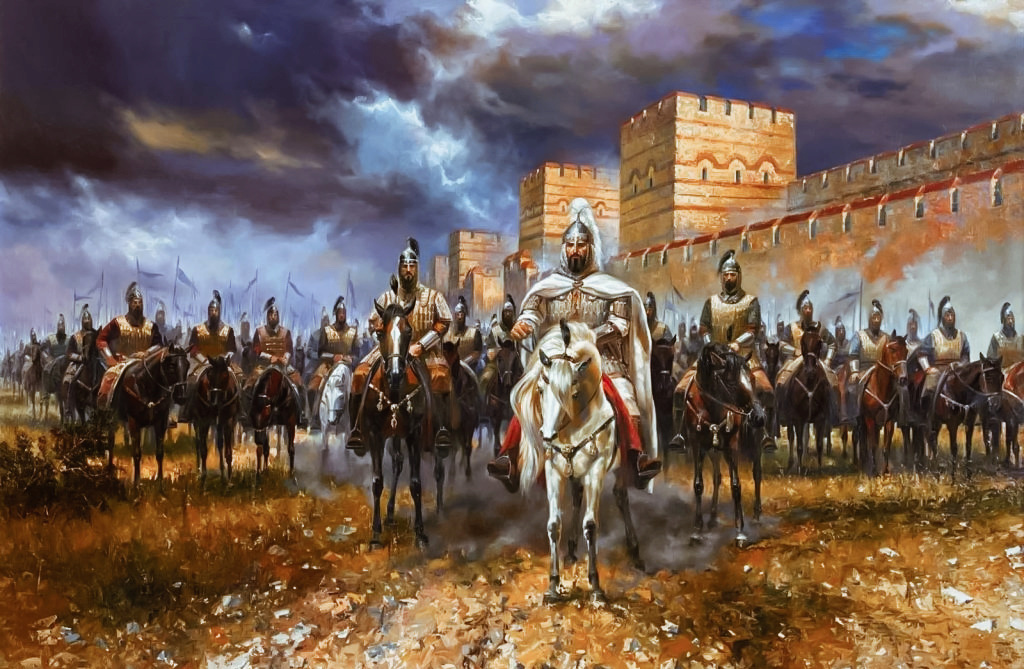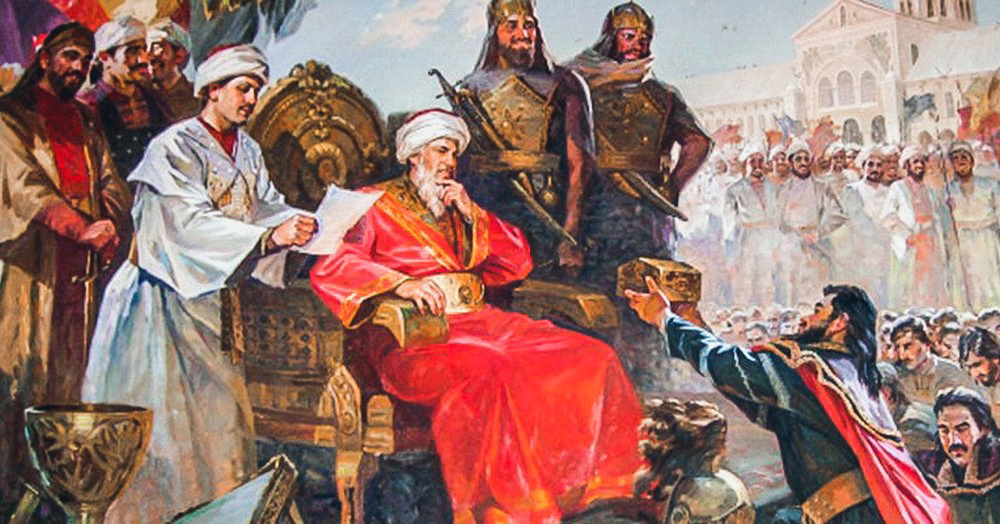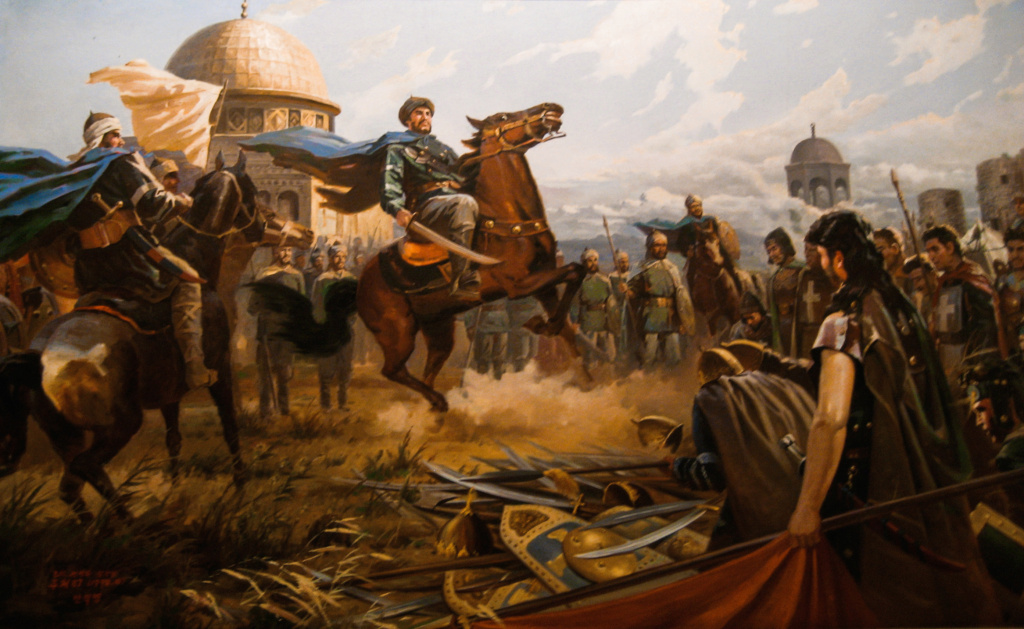!Populism: When the Abbasid rulers sought to turn the tables on Arab Muslims

The concept of populism was launched on the two tendencies; Those that called for equality, and those that degraded the Arabs. However, according to what we notice in the Arabic dictionaries, the definition of populism has been linked more to the second tendency, which we will follow up in this second part.
After we followed in the first part some of the harbingers of the emergence of “populism”, which emerged in its first stages at the end of the Umayyad era, in the form of a movement calling for settlement between Arab Muslims and Muslims from the rest of the peoples, we follow in this second and final part, the development of the movement in the Abbasid era, as it became degraded of the value of the Arabs.
Whoever traces the thread of populism in the accounts of the newsmen, will notice a lack of interest in the moment that separates populism in its first stage from its second. There is no clear picture of this transition, and its gradient, which became more intense with the progress of the Abbasid era.
This is confirmed by the Iranian thinker Ali Shariati in his book “Alawite Shiism and Safavid Shiism,” where he says that “populism gradually transformed from a settlement movement to a movement that favors the non-Arabs over the Arabs, and worked by promoting nationalist feelings and spreading despair from Islam to striking the authority of the caliphate.”
According to the Sudanese researcher Ahmed Faragallah in his book “On Heresy and Populism,” it seems that the attention of the newsmen at that time was focused on defending the Arabs, refuting the appeals directed at them, highlighting their exploits mainly and confirming their superiority over other peoples.
However, through their writings, we can easily estimate the second stage of populism in the Abbasid era, in which the state relied at that time on some Persian elements.
And because populism occupies an important place in Al-Jahiz's writings in particular, we can also estimate that it was one of the worst social diseases that ravaged the Islamic state during the second and third centuries of Hijra.

The concept of populism appeared for the first time with Al-Jahiz , as we followed in the first part , and he called the two tendencies, those that demanded equality, and those that degraded the Arabs. However, according to what we notice in the Arabic dictionaries, the definition of populism has been linked more to the second trend.
Regardless of the fact that Al-Jahiz lived in the Abbasid era, the Egyptian thinker Ahmed Amin went in his book “The Sacrifice of Islam”, to the fact that populism as a concept appeared in the early Abbasid era, and it had its roots in that.
He says... that most of the names of the sects before the Abbasid era did not have the ya’ attribution; Like the Kharijites, for example, the Shiites, the Murji'a, and the Mu'tazila... And this percentage did not appear except with the Abbasids; Like the Jahmiyyah, for example, and the Rawandi... and the Shu'ubiyyah.
By the way, Amin points out that this tendency did not only include the Persians, as they also included Nabataeans, Copts, and Andalusians, and each of them had a special character.
The populism of the Persians, Amin explains, had a national character that called for independence, sometimes taking the form of heresy and atheism , and that of the Nabataeans, appeared in the form of fanaticism for the land and its cultivation, and the preference for plowing and cultivation over the desert and its livelihood, while Coptic populism was manifested in various revolutions against the Arabs , as they wanted to expel them from their country, and the last great revolution was during the reign of Al-Ma’mun, then in Andalusia a man named Ibn Gharsia appeared who put his message in populism as well.
What happened is that these peoples, mainly the Persians, felt after the “conquests” and after they became “loyalists” that they were more civilized and civil than the Arabs, and after what they tasted from these people, as we saw in the first part, and after what befell their empire, perhaps fanaticism developed in them . They were nostalgic for the past.
According to what Ibn Abd Rabbo Al-Andalusi mentions in “The Unique Deed”, there are several factors that made the mawali’s nervousness rage towards the Arabs, including… that all the kings of the earth were non-Arabs (the Kasara, the Caesars, the Negus…), and that all of the prophets were non-Arabs except for four who were Arabs (Hud Saleh, Shuaib, Muhammad).
Among them also … what is related to the customs of the Arabs, the captivity of women, and that marriage was sometimes done by them without a contract or istibara …

To highlight this racial superiority, the populists had two main means, which are the classification of books and poetry systems.
The most prominent of them in this regard is the poet Bashar bin Burad, and the poet Dick Al-Jin, who used to say, according to Al-Isfahani in his songs: “The Arabs have no merit over us. We were brought together by the birth of Abraham, peace be upon him, and we embraced Islam as they embraced Islam, and whoever killed a man among us was killed by it, and we did not find God Almighty favoring them over us when we gathered religion.
And as one of their poets said, in what Badi’ al-Zaman al-Hamadhani narrates:
“You will not leave Ewan Khosrau... to make it clear or to get pregnant, so enter
A pack of wolves and a wolf swarmed in the wilderness... with it howling and a lion in the midst of a ghoul.”
In fact, whoever reads the mutual satire between the Persians and the Arabs at that time believes that nationalist feelings almost jump out of their chests as masses of fire and anger, says the Lebanese researcher Hussam Itani in his book “The Arab Conquests in the Narratives of the Overpowered.”
By the way, Al-Jahiz warned of the possibility of transforming populism from a cultural and social movement into a national political movement, but Itani asserts that it lacked in reality a political program.
The sign of this, according to Itani, has always been that no evidence has been established of its connection with the Iranian rebel movements, such as the Babaki movement, for example. Rather, most of the populists were senior officials in the state bureaus, so it was not in their interest to collapse.
What the populists did, according to this basis, was not, in fact, a struggle against the state, but rather a struggle within it and over its political positions. In other words, populism tried to change the state from within, and had no ambition to overthrow its foundations.
In the end, Itani attributes the collapse of populism to three factors: the progress of Arabic literature, which succeeded in merging the pre-Islamic Arab literary tradition with the Islamic religion; the emergence of the Mu'tazila with a strict monotheistic vision; And the establishment of the House of Wisdom, where the translation of the works of Greek philosophers and theologians, contributed to countering the dualistic tendencies derived from Zoroastrianism and Manichaeism, which were carried by a number of populists.

Then the whole scene began to change after that, with the emergence of independent Persian emirates in eastern Iran and Central Asia, and the arrival of the Turkish soldiers as a major element in drawing up the caliph's policies, which entered a long phase of competition between the Turks and Persians... at the expense of the role of the Arabs.
Written by: Karim Al-Hani
Source : websites

